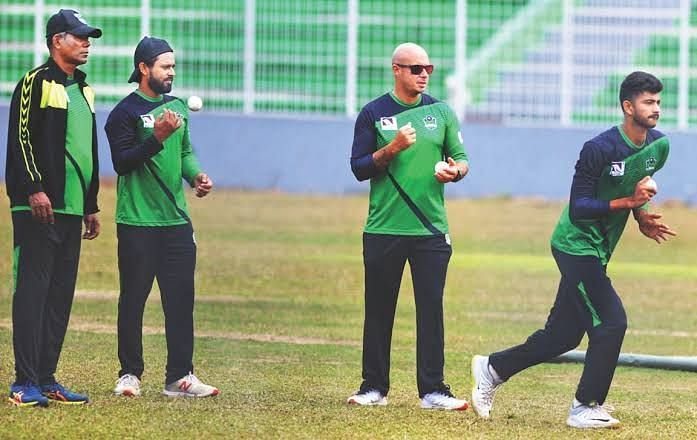
The need to tackle language barriers in cricket

Former South African batsman and the current coach of Sylhet Thunder in the 7th edition of Bangladesh Premier League, Herschelle Gibbs has had a torrid stint so far. The team is currently languishing at the bottom of the table with just 1 win in the 9 matches it has played so far. Gibbs has now given an explanation for this performance, saying that the local Bangladeshi players within Sylhet Thunder do not understand English. This has caused a language barrier due to which he is unable to communicate his messages effectively to the team.
The issue may seem insignificant at first, but it gives us an opportunity to give a thought about the effectiveness and limitations of foreign coaches in cricket, and sports in general. Moreover, it brings forth the issue of the lack of education among athletes.
Since the turn of the century, there has been a wave around the cricketing world with respect to foreign coaches. Indian cricket's first proper tryst with a foreign coach came with the arrival of former New Zealand cricketer John Wright in the year 2000, followed by the infamously tumultuous stint of former Australian cricketer Greg Chappell from 2005 to 2007. The pros and cons of foreign coaches were described by Greg Chappell himself in an article he wrote back in 2004. The biggest disadvantage of foreign coaches, as described in the above mentioned article, is the language barrier it may entail. He wrote,
"It will become a major problem if the captain or the players lose respect for the coach. Ironically, a language barrier can be an advantage. Communication becomes more powerful when you are forced to use more than your verbal skills. Sometimes the less you say as a coach, the better."
The ever-so-growing nature of T20 leagues around the globe has meant more and more appointments of foreign coaches. The commerical nature of the game has compelled the peformances and end-result to be a major yardstick for the appraisal of these coaches. However, the decision-makers of T20 teams around the world need to take cognisance of the language barrier that may exist in the team before hiring anyone for the job.
Also see – Under 19 world cup points table
Former South African cricketer Charl Langeveldt, who was appointed as the bowling coach of Bangladesh national cricket team in July 2019, faced similar communication barriers. However, owing to his prior experience with Afghanistan national cricket team, he was able to tackle this obstacle through a more one-on-one approach so that the players feel comfortable while talking about their issues. The team owners may take a cue from such an approach and look for coaches who have prior experience in tackling such issues or have a well thought-out strategy in place.
Now, let's talk about the players. The influx of T20 leagues and thereby, money into the game has paved the way for cricketers to become millionaires irrespective of their education. However, this phenomenon has encouraged more dropouts from schools and colleges.
Although dropping out of formal education has given aspiring cricketers the time to develop and polish their cricketing skills, but it does elude them of the skills that are taught in academic classrooms, such as command over the English language. This is specifically true for the Indian subcontinent, wherein English is not the first language. Hence, these players face issues like the one currently faced by the local Bangladeshi players at Sylhet Thunder.
Supremely talented players playing in the tutelage of their childhood idols might not be able to get the most out of their experience due to their inability to understand English. It is the responsibility of the local cricket boards to provide the basic academic skill set to its players, not only for effective communication while playing, but also with an eye for a life after cricket.
Cricketing careers can last for merely a decade or two, and not everyone can forge a career in coaching. A career in commentary also requires effective communication skills, which not everyone can be adept at. Hence, it is necessary for cricketers to acquire skill sets which would help them forge a career even after their cricketing careers come to a close. Communcation skills and education are necessary for a successful life during and after your cricketing days.